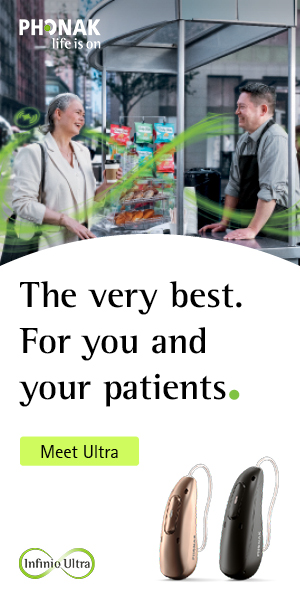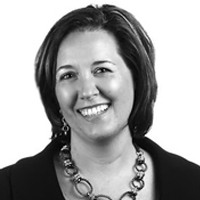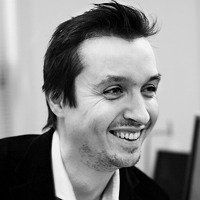Evaluation and Counseling: An Essential Part of Tinnitus Patient Care
Carolyn Smaka: What is the significance of tinnitus management to patient care today?
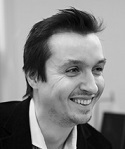
Clement Sanchez: There definitely a growing need for tinnitus care. The American Tinnitus Association (ATA) states that approximately 50 million Americans experience it to some degree and about 16 million experience it severely enough to seek medical attention. Many people who experience tinnitus symptoms will open up about “ringing in the ears” during further discussions with their audiologist and will report that they are often more bothered by this than their hearing loss - and they are eager to get rid of it.
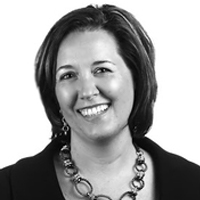
Wendy Switalski: People often don’t recognize -- or are in denial of -- the effects of their hearing loss. But with tinnitus, they actually are open to seeking help. Fortunately, we see more and more treatment options available as well throughout the hearing care industry and there is an increasing number of hearing aids with tinnitus management features to help ease the symptoms.
Carolyn: Is the tinnitus a hearing disorder? Where does an audiologist begin when assessing a patient with tinnitus symptoms?
Clement: Great question. No, tinnitus is not a hearing disorder. Although patients typically relate it to hearing discomfort, it is actually a psychological symptom. For example, if we do an MRI of that patient’s brain the tinnitus actually activates a part of the brain that is linked to one’s emotion. Understandably, it is confusing for some patients because it is an acoustic phenomenon. Patients don’t often talk about pain when describing their tinnitus, they will usually talk about a “ringing sound”. That “sound” is actually a signal from the brain.
Wendy: An audiologist is typically one of the first healthcare providers the patient sees. So although the audiologist may not specialize in tinnitus evaluation or treatment, as the initial medical contact it is important that adequate evaluation of symptoms occurs. I suggest starting with a dialogue because a better understanding of the patient’s tinnitus is the foundation to discuss the effect it has on their daily life. Open conversations facilitate patient trust and a closer relationship.
Clement: A tinnitus assessment can help improve the communication process for both the clinician and the patient. Actually visualizing it on an audiogram makes the tinnitus real rather than something imagined. A tinnitus assessment can also help you determine the most effective tinnitus management plan. With constructive dialogue and an effective tinnitus assessment, patient will leave your clinic with a greater understanding about what tinnitus is, and a concrete plan for dealing with it on a daily basis.
Carolyn: What are the applied benefits of a tinnitus evaluation?
Clement: Without an assessment you are working without a target, and you have no clear way to monitor outcomes. Using a structured assessment offers a consistent method that allows you to set the direction of treatment, and then compare results over time to see if the impact on daily life is being lessened – which is the goal of tinnitus treatment.
Carolyn: How can you quantify subjective tinnitus symptoms? How can the tinnitus module in MADSEN® Astera2 help audiologists today?
Clement: By providing a structured framework, the MADSEN Astera2 tinnitus module efficiently guides the assessment through the important milestones needed. It also allows the clinician to find a balance between the necessary support (counseling and listening), but still assist the patient in setting reasonable goals towards habituation. We discussed the assessment process on more detail in a previous interview with AudiologyOnline.
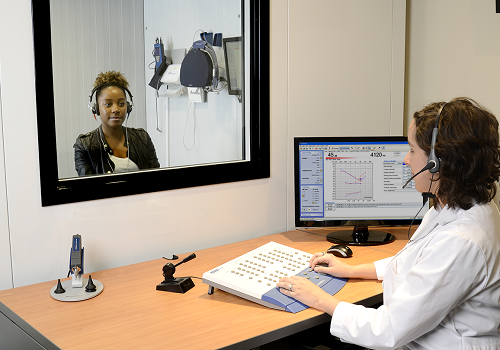
Carolyn: Can you describe the billing and reimbursement process for tinnitus assessment?
Wendy: Yes. There is a current procedural terminology (CPT) code for components of the tinnitus evaluation. The tinnitus assessment CPT code 92625 specifically includes the components of pitch matching, loudness matching, and masking, performed for both ears. If testing is only completed for one ear, or only partially completed, a modifier of -52 is recommended.
Carolyn: You recently announced that tinnitus markers are now available in the AURICAL®. How does this update impact the fitting and verification workflow?
Wendy: We recognize that assessment is just the beginning of the process when working with tinnitus patients. With OTOsuite® PMM and AURICAL, any tinnitus measurement data created using MADSEN Astera² can be shown in OTOsuite PMM Aided Response and FreeStyle. When sound therapy is indicated, verifying the masker response is helpful as well. Through OTOsuite and Noah, the AURICAL fitting system now incorporates the results obtained in the tinnitus module and allows clinicians to verify that masking is occurring in the intended frequency range using their probe microphone system.
Clement: The new tinnitus feature in AURICAL provides the hearing care professional with an efficient way to verify hearing instruments with tinnitus management programs and devices. Tinnitus markers are an additional set of overlays in the audiogram that designate the pitch and intensity of the perceived tinnitus.This is helpful to limit or control for any undesirable negative impacts that a tinnitus masker may have on audibility within the speech frequencies; and also to evaluate the appropriateness of traditional amplification from hearing instruments to use for tinnitus treatment purposes.
Carolyn: How can existing MADSEN Astera2 and AURICAL users access the latest upgrade?
Wendy: Because the Astera2 and AURICAL and are both software-based, hearing care professionals already using these instrumentation can access all these enhancements at no charge through a simple software upgrade by downloading the latest version of OTOsuite from our website, www.audiologysystems.com/otosuite. They can also contact their Audiology Systems sales representative to upgrade their system to the latest version, or call us at (855) 283-7978.
Carolyn: Are there any developments since you first launched the tinnitus awareness campaign in 2014?
Clement: The level of interest has been even higher than we anticipated. It has generated significant dialogue from hearing care providers about how they can meet the needs of people suffering from this issue. Since we first launched the campaign, we continued our advocacy to create awareness and recently introduced an integrated tinnitus module for the AURICAL to improve the patient’s fitting experience.
Wendy: We have found that audiologists appreciate integrating the tinnitus assessment into the audiometry and fitting instrumentation. This has allowed them to incorporate these tools right into their clinical workflow; and has allowed them to increase their level of care with minimal additions to time.
Carolyn: Do you offer training for professionals specific to tinnitus care? Where can they read about tinnitus patient management?
Wendy: Audiologists and hearing care professionals who are interested in adding tinnitus care to their practice can view a series of courses, white papers, and reference materials are available at www.audiologysystems.com/tinnitus. We also have a recorded webinar on AudiologyOnline.

Carolyn: What we can expect from Audiology Systems and Otometrics regarding tinnitus care in the future?
Wendy: Audiology Systems' goal as an organization is to improve the tinnitus care experience for both the patient and the hearing care professional. Since 2014, we worked closely with GN Otometrics to create awareness about tinnitus patient management. Creating awareness about the importance of assessment and counseling was simply the first step.
Clement: Otometrics, Audiology Systems, both companies are passionate about empowering audiologists and hearing care professionals by developing intuitive tools and solutions to the tinnitus portfolio. We believe in the importance of “helping the helpers” as they serve patients who need specialized care. The tinnitus module in the MADSEN Astera2 and the fitting tools in the AURICAL are a testament to our dedication. As the need for tinnitus care continues to grow, we continue to develop not only the tinnitus module but other supplemental tools that help clinicians provide comprehensive care to their patients with tinnitus. We will continue to advocate for tinnitus patient care in the future.
Visit www.audiologysystems.com or the Otometrics / Audiology Systems Expo Page on AudiologyOnline for more information.

